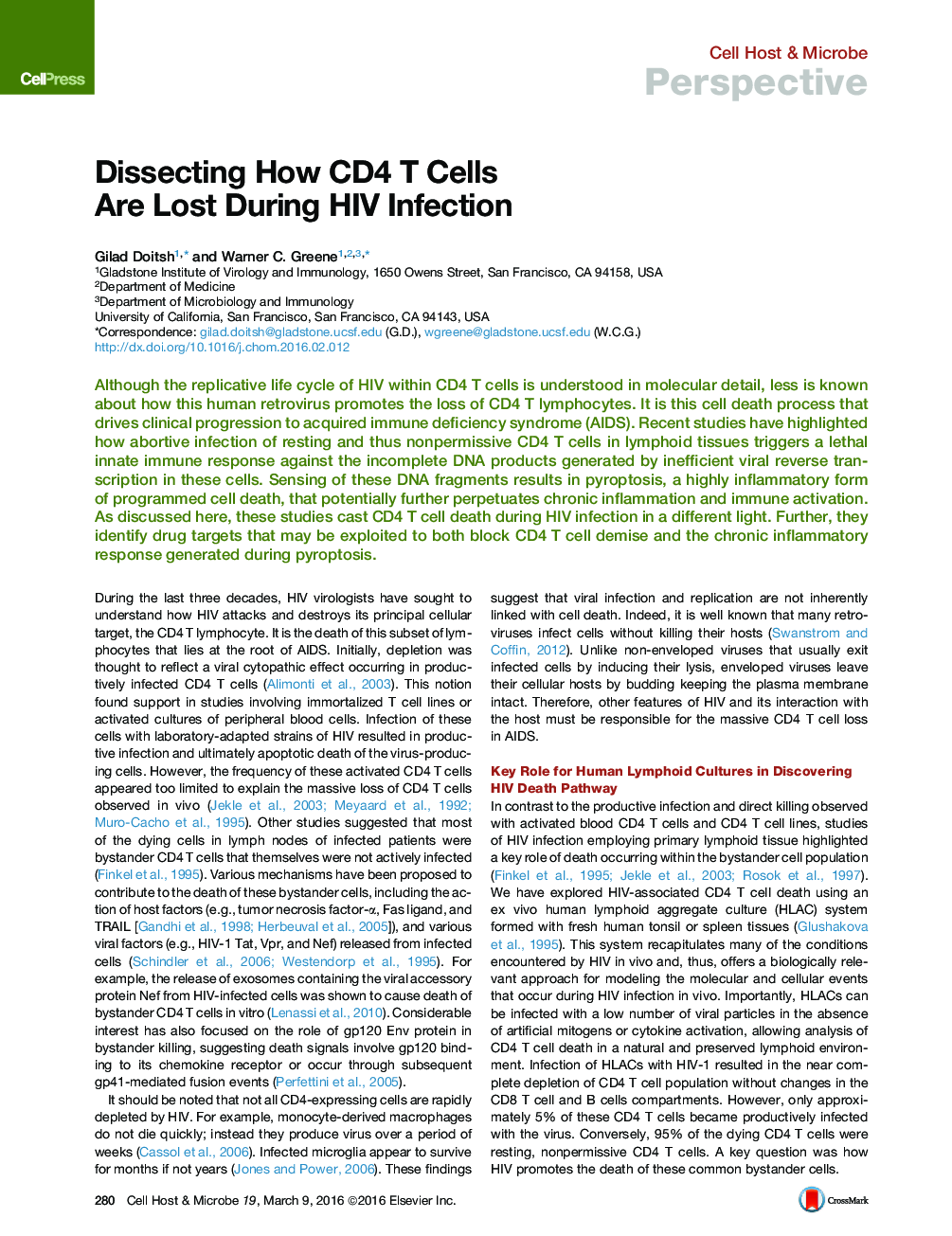| Article ID | Journal | Published Year | Pages | File Type |
|---|---|---|---|---|
| 4360843 | Cell Host & Microbe | 2016 | 12 Pages |
Although the replicative life cycle of HIV within CD4 T cells is understood in molecular detail, less is known about how this human retrovirus promotes the loss of CD4 T lymphocytes. It is this cell death process that drives clinical progression to acquired immune deficiency syndrome (AIDS). Recent studies have highlighted how abortive infection of resting and thus nonpermissive CD4 T cells in lymphoid tissues triggers a lethal innate immune response against the incomplete DNA products generated by inefficient viral reverse transcription in these cells. Sensing of these DNA fragments results in pyroptosis, a highly inflammatory form of programmed cell death, that potentially further perpetuates chronic inflammation and immune activation. As discussed here, these studies cast CD4 T cell death during HIV infection in a different light. Further, they identify drug targets that may be exploited to both block CD4 T cell demise and the chronic inflammatory response generated during pyroptosis.
